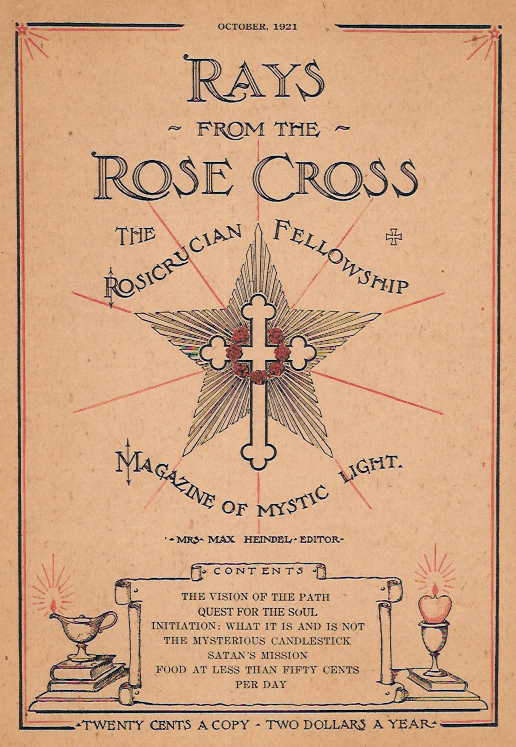


Both the illustration on the preceding page and the above retyped facsimile of text appeared in the Secret Symbols of the Rosicrucians of the 16th & 17th Centuries, published in Altona, Germany in 1785. The original German text, was in the form of thirty rhyming couplets.
The illustration has been identified as the work of Basilius Valentinus, a sixteenth-century alchemist who had depicted in a series of sketches the central themes from Wolfram von Eschenbach's Parsifal. As such, it purports to depict the knights (in unknightly attire!) Parsifal, Gawain, and Feirifis, the three heroes of the tale, standing before the Hermitage of Treverezent, the aged and wise Guardian of the secrets of the Grail.
The various figures on the path up the mountain represent the disciplines and trials confronting a knight searching for Grail Initiation. A hare, signifying both alchemy and the fleeting, inconsistent thoughts of the neophyte, skitters at the base of the philosophical mountain. Various stages in the alchemical process of transformation are symbolized by the different animal forms. A large fat hen broods on a nest of eggs to designate the warmth and will power which must be brought to the development of the picture-building imagination, so that thought can become as substantial as external objects and take on a new clarity of form and permanence.
The principle effecting this entire transformative process is
work, better known to students of the Rosicrucian teachings as
service. The whole realm of feelings, the sympathies and antipathies,
represented by the lion, must be mastered. The unleashed instincts,
impulses, and desires, (the dragon) must be slain, though the
dragon's power now subserves the higher Self. Material consciousness
(moon and sun in the confining barrel) is ultimately transcended,
the aspirant applying the art of wisdom, purity, and humility
to gain the crown of glory signifying mastery over the physical
world and his lower nature. Possession of the philosopher's stone,
or golden wedding garment, is thereby signified. The molten sea
has successfully been poured.
— Rays from the Rose Cross Magazine, November/December, 1995